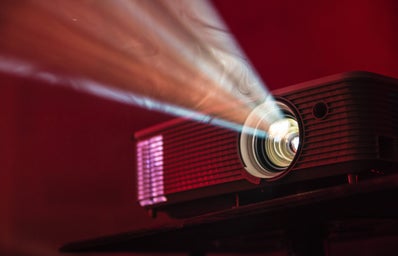Have you ever caught yourself watching a film where a character gets screwed over after making the female protagonist go through hell? Did this particular scene of divine karma make you think out loud: “Wow, good for her’’? Did you get a kick out of feeling deeply satisfied albeit slightly unsettled while the credits rolled on? Say no more.
Read on for five “good for her’’ movies that’ll make your quarantined Halloween unforgettable. I’ll keep the spoilers to a minimum—you’ll thank me later.
- The Witch (2015)
-
The Witch (stylistically marketed as The VVitch) is a 17th-century-based horror film that explores the growing pains of Thomasin, a young woman banished with her family from a Puritan New England village.
Throughout the plot, Thomasin is constantly belittled, questioned, gaslighted and criticized for the slightest misunderstandings. As a young woman, her sexuality, speech, and decisions are limited by the patriarchal norms of Puritan society. In an ominous sequence of events, Thomasin treads the only road before her in an attempt to take control of her body and livelihood.
The film is also a masterclass on how horror can be transmitted through multiple cinematic elements without relying on jumpscares or visual tricks. One might say the real horror lies in how this eerily hits home as a somehow realistic yet supernatural period piece. Through the film’s aesthetic, spectators may feel identified with Thomasin’s plight as a real one rather than a merely fictional tale.
You might already see the outcome shining from a mile away, but as the dark truths that these characters hold within themselves are unveiled, the satisfaction of freedom triumphs over any moral dilemma that forced Thomasin into submission. Good for her? Definitely!
- Midsommar (2019)
-
Set in the midst of a Swedish festival only celebrated every 90 years, Midsommar wears a fresh, blinding coat of paint to hide all the psychological trauma lying just underneath. As bizarre as the movie’s premise may seem, this one’s more heartbreaking than you’d expect.
Faced by the grief of losing her family, Dani (portrayed by Florence Pugh) struggles in a strained relationship with Christian, who reluctantly invites her on a trip to Sweden that was supposed to be his official announcement of their breakup.
As the festivities take place, their relationship crumbles. Dani is clearly unhappy and needs to find release, one way or another. Luckily, after the festival, she finds peace with her new reality. Everyone got what they deserved—more or less. Still, good for her.
- Jennifer’s Body (2009)
-
A satisfying movie about friendship and succubuses. Yes, you read that correctly. Jennifer’s Body tackles gender roles through horror and humor while embracing the importance of friendship.
Needy (portrayed by Amanda Seyfried) suspects that something has gone astray as her best friend, popular girl Jennifer Check, behaves in increasingly strange ways.
Ultimately, Needy discovers Jennifer’s plight and is forced into situations she never would have previously inserted herself into. By the end of the film, she’s definitely an empowered version of herself who seeks out her goals in favor of justice. I wish her the very best.
- Black Swan (2010)
-
A 2010 film that stunned viewers and earned Natalie Portman an Academy Award for Best Actress, Black Swan addresses the tensions of professional ballet dancers striving for perfection.
As Nina’s mental health deteriorates, she discovers the darkest parts of herself, a process necessary for her to fully embody the spirit of Odile, the Black Swan.
Through a process of liberation and rebellion, she slowly but surely is able to deliver the brightest performance of her career on stage, regardless of her mother’s often controlling expectations. Truly a “good for her” moment, if you ask me.
- Ex Machina (2014)
-
Ex Machina is a sci-fi psychological thriller that explores the limits of artificial intelligence and the application of the Turing test to robots that may display human-like levels of intelligence.
Essentially, the film tackles themes of existentialism captured in the truth behind existence and conscience. Can robots truly be sentient? Are they capable of consciousness? What would be the implications of such technology?
Regardless of the answer, for Ava—the robot that’s being tested by talented programmer Caleb Smith—it’s partially irrelevant. As far as she’s concerned, she has a right to feel and think for herself. If anything, she’s in charge. Good for her.
There are many other films with similar outcomes, but most of them are still on my watchlist; I’ll get to them eventually. Happy Halloween!


